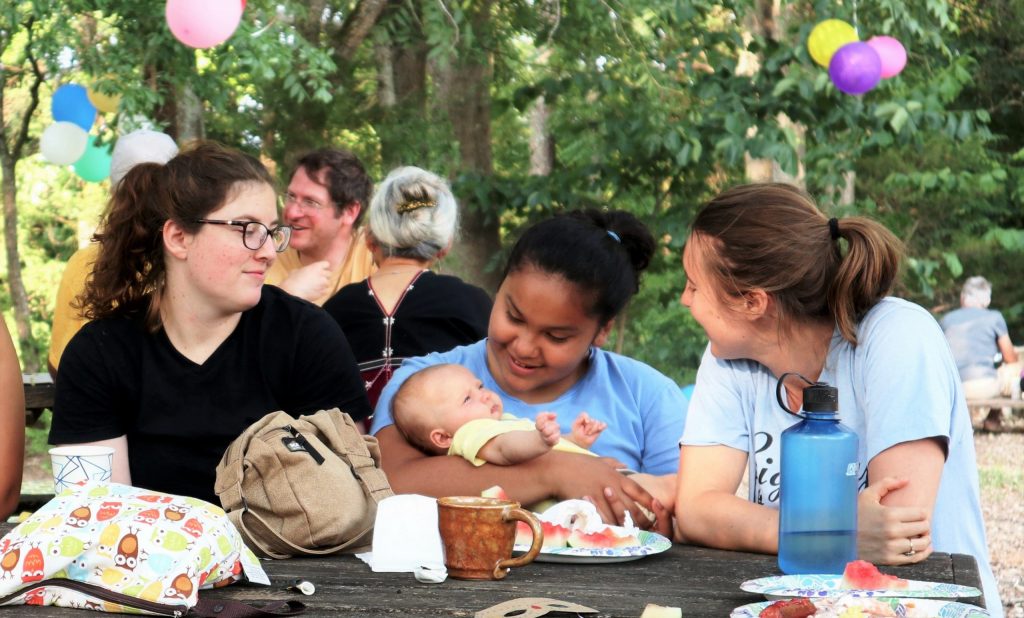
Living at Jubilee
We make an effort at Jubilee to live in a way that is simple, frugal, and ecologically responsible. As part of this lifestyle, we reduce our consumption of material resources where we can, limit some applications of communications technology, hold much of our property in common, and try to make good use of our land and our labor. Resident volunteers are invited into this lifestyle as a part of the volunteer program.
For food, we rely heavily on produce from our gardens, eggs from our chickens, and milk from our dairy cow. We buy mostly staple ingredients like beans, grains, cheese, and spices from the grocery store, and we eat meat only occasionally. In the summer and fall we enjoy a great abundance of fresh fruit from the property.
Most single volunteers live in dorm-style rooms with a shared bathroom and access to a common kitchen. Families live in modest apartments with their own kitchen and bathroom. We don’t use air conditioning, except in a few common areas and in the homes of some older members. In the winter, most staff residences are heated with wood-burning stoves.
We have internet available to use in our office and school buildings, but the internet is not generally available in residences. Most of us use cell phones, but we try not to let them be a distraction during our times together. We don’t watch television for entertainment, though we do enjoy watching well-chosen movies together as a community. We have a library with a large collection of books for both children and adults.
We have many acres of open space on our property, including forest paths, playground areas, a swimming dock and fishing ponds. We tend to do a lot of our recreation outside. Many of us enjoy playing board games in the evenings or making music together. A short walk away from our property is downtown Comer, where there are a few stores and restaurants and many cherished neighbors. Thirty minutes away is the university town of Athens, with a number of fine museums and parks as well as shopping places.
School-age children in the community generally attend the public schools, and we have a strong working relationship with the staff in our local elementary school in particular. In two-parent volunteer families, parents alternate between community work assignments and caring for their children who are not in school; there are also occasions when parents can join in community work with their children.

